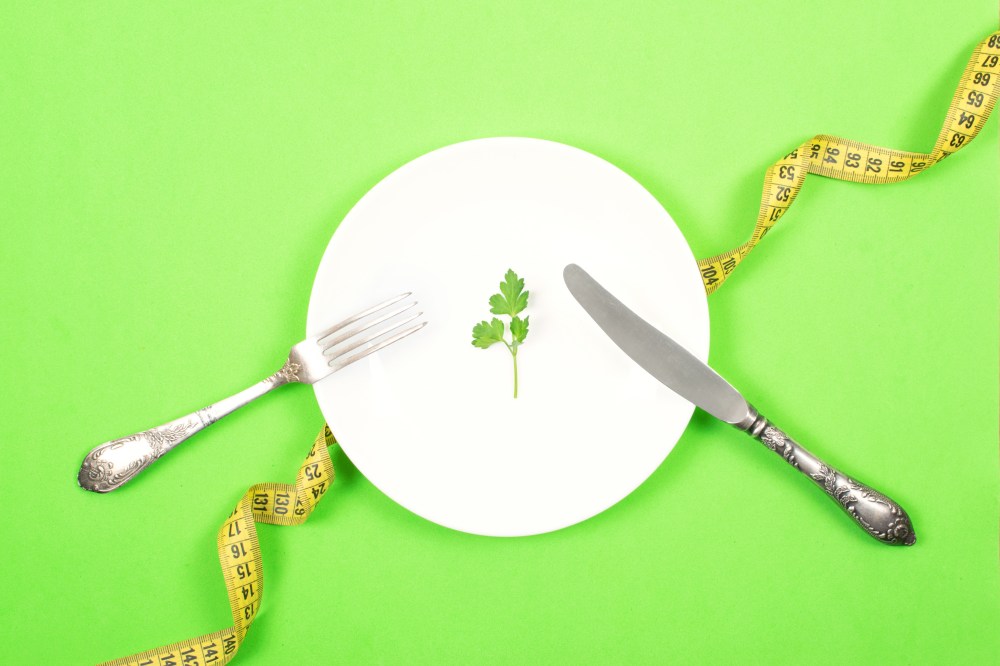Intermittent Fasting Vs Small Meals: Which One Is Better?
What is Intermittent fasting | Intermittent fasting pros | Advantages of Small Meals | Small Frequent Meals vs. Intermittent Fasting
The weight loss journey may appear challenging, but a planned approach and discipline can help you manage it better. While adapting to a healthy lifestyle, including an exercise regimen plays a vital role in keeping you fit and shedding those extra pounds. At the same time, paying attention to your eating habits is equally important.
While several fad diets come and go, a couple of strategies continue to benefit people in managing weight issues. Intermittent fasting is one such strategy followed by a large population worldwide. Its popularity has also sparked debates such as ‘Is it better to fast or eat small meals?’
If you, too, have the same question on your mind, this article has you covered.
What is Intermittent fasting?
Before deciding whether it is intermittent fasting or small meals that are more likely to work for you, here’s a brief on these fasting strategies.
Intermittent fasting is an eating strategy that cycles between periods of eating and fasting. This strategy comprises a window for eating and at least 16 hours of fasting. However, this plan does not have any specific prescription for the content of your meals during the eating period.
While the 16 hours of fasting method is relatively more popular, there are a couple of other schemes, such as the eat-stop-eat and 5:2 diet methods, that are considered variants of intermittent fasting.
The eat-stop-eat involves 24 hours of fasting, which will be observed once or twice a week. The latter method, i.e., the 5:2 diet, deliberates on consuming 500-600 calories on two non-consecutive days of the week without changing your regular diet for the other five days of the week.
To learn more about intermittent fasting and its effects, read A Complete Guide To Intermittent Fasting + Daily Plan & Schedule.

Reasons Intermittent fasting Can do you Good
Fasting isn’t new to us! Humans are accustomed to fasting, and our bodies quickly adjust to periods of fasting.
Although it might take a while to acclimatize the body to fasting for someone who has never fasted, it has been known to prevent diseases, improve metabolic health, and aid in weight loss.
Regularity is crucial in intermittent fasting because the absence of food forces the body to deplete its sugar reserves in order to burn fat. Metabolic switching is another name for it.
However, it is essential to ensure you don’t keep yourself undernourished for long periods when practicing intermittent fasting. Eating a balanced diet in the eating window can keep your cravings low and minimize food obsession.
To know how exactly intermittent fasting functions and what additional advantages of fasting are, read – 8 Benefits Of Intermittent Fasting: A Complete List.
What Happens When you Opt for Small Meals?
Some people prefer the eating strategy that involves eating small meals throughout the day instead of fasting or indulging in the traditional three square meals. This method focuses on spacing your meals 2-3 hours apart. Several fitness enthusiasts and bodybuilders have been using this strategy for years.
If you were to compare eating every 3 hours vs. intermittent fasting, the latter does not have to focus on the meal content, but with the first, both the size and content of each meal play an important role in the diet plan.
One of the advantages of following a small meal plan is that it never leaves you deprived and hungry as you fuel up every 2-3 hours.
With the intake of wholesome calories throughout the day, you can expect your energy levels to be steady and high. This plan, aimed at steady fat loss, helps maintain muscle. It is important to restrain oneself in this diet plan and not go overboard on any meals. Also, this method does not have any room for cheat meals.

Small Frequent Meals vs. Intermittent Fasting
If this question resonates with you, then here’s what you need to pay special attention to help you shape up.
Timing
The time you eat is a considerable factor in both intermittent fasting and small meals strategy. You will have to wait until the appointed time to eat and abstain from mindless snacking habits. Eating deep-fried food or nibbling on calorie-laden pastries in the eating window just because it is available is out of the question.
Content of your Meal
In the six small meals plan, you should pay special attention to the details of every meal. The content of the meals is significant in this diet and calls for precise calorie control.
Hence, this plan works well for weight and fat loss. On the other hand, there are no specific restrictions on the meal content during the eating period in intermittent fasting. However if you’re in for the weight loss it’s still important to watch what you’re eating.
Meal Size
The six small meals plan is clear about the meal size and the content. That’s an important factor as you will be eating six times every day, and excess calories can work against you instead of aiding weight loss.
The portion size is calculated using a food scale to ensure that you eat exactly the right amount of food, be it lean proteins, veggies or complex carbs as prescribed for you. Intermittent fasting does not restrict you to any meal size for your eating window.
Which One to Choose: Fasting vs. Small Meals
If you are contemplating which eating strategy to select, it may please you to know that both can produce results as both these plans lower the calorie intake.
Regardless of the chosen plan, it is essential to balance the calorie in your meals. As long as you eat fewer calories and burn them, you will lose weight.
While both the strategies restrict your calorie intake, the six small meals plan encourages wholesome calories that work well in burning down fat and building your muscles.
You can choose a strategy that suits your lifestyle as only a well-synced plan will likely work better and produce results for you. You can zero in on a plan that restricts your calorie intake and is realistic. Only a practical plan will keep you motivated to adhere to it. Just ensure that you adopt a plan that includes a wholesome, nutritious diet.
Are you new to the concept of intermittent fasting? You may get started with our 21-day intermittent fasting challenge and achieve your desired weight loss. Get daily doses of motivational tips and strategies for developing the habit of fasting. Start your fasting journey here- 21-Day Challenges For Weight Loss.



